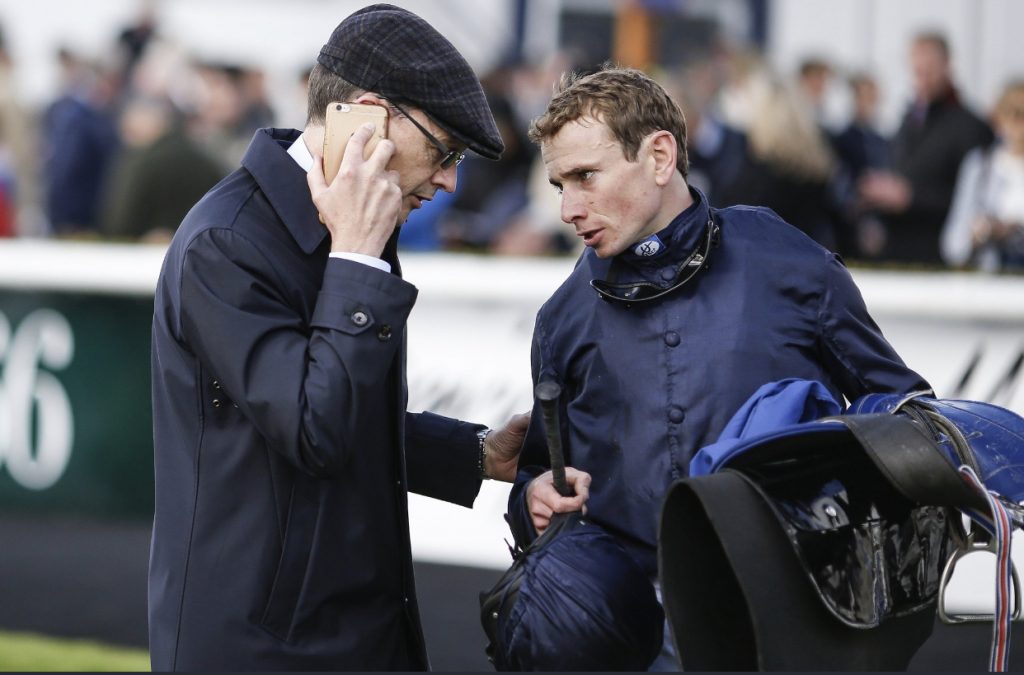
Great Too Early:
By: Peter Lee
In the book American Pharoah, author Joe Drape recounts an incident in which Vinery Farm manager Frances Relihan, impressed with American Pharoah’s smooth movements, appetite and maturity, called owner Ahmed Zayat about the colt. Even though he was only a yearling, she told Zayat, “He has been a standout here and I wish you luck with him. There’s something special about him.”
Some horses are born with greatness in them, and it’s visible at a young age. When Spectacular Bid won his first start at age 2, Daily Racing Form writer William Phillips exclaimed, ““We’ve got ourselves a good one. We’ve got a Kentucky Derby horse!”
Call it hyperbole, but he was right; Bid went on to win 25 out of his next 29 races, including the Kentucky Derby and Preakness Stakes.
It’s been true throughout horse racing history. A quick examination of the top Thoroughbreds of the 20th century, as compiled by the Blood-Horse, shows that 11 of the top 15 horses were champion 2-year-olds: Man o’War, Secretariat, Citation, Count Fleet, Native Dancer, Seattle Slew, Spectacular Bid, Tom Fool, Affirmed, Buckpasser and Colin. More recently, American Pharoah was a 2-year-old champion who went on to Triple Crown greatness and Horse of the Year honors.
But sometimes, champion 2-year-olds don’t pan out as champions at ages 3 and up. Some peak too soon or fail to mature; some who relished the short distances as 2-year-olds find that they tire at the longer distances 3-year-olds face. Others go up against tougher competition in their second year of racing, and their trainers find that the horses weren’t as good as they previously thought.
History is filled with these disappointments. Some notable 2-year-olds that failed as 3-year-olds include:
- Double Jay (Champion 2-year-old, 1946) won 6 out of 10 races at 2 and was considered the early front runner for the 1947 Kentucky Derby. But a third-place finish in an allowance race, followed by a next-to-last result in the Derby Trial, lowered his stock. He finished 12th out of 13 horses in the Kentucky Derby and did not race in the Preakness and Belmont. He continued racing until age 5, amassing an unimpressive 17 wins in 48 starts.He did have a successful career at stud, earning honors as the North American Champion broodmare sire in 1971, 1975, 1977 and 1981. He was the damsire of such greats as Ferdinand and John Henry.
- Successor (1966) never finished out of the money as a 2-year-old, winning 5 of 9 starts, including a win over the previously unbeaten Dr. Fager in the Champagne Stakes. However, in 1967 the son of Bold Ruler didn’t race until the spring, when he finished fourth in both the Swift Stakes and Blue Grass Stakes. Still winless for the year, he was entered in the Kentucky Derby, and he finished a disappointing sixth. He won only 2 of 13 races that year. His career record, though, was respectable, finishing out of the money only six times in 25 starts.
- Top Knight (1968) won 5 of 9 races in 1968 and only finished out of the money once in those starts. The next year, he lost three straight races – one by disqualification – before capturing the Flamingo Stakes and Florida Derby. He was starting to return to form, and some were picking him to win the Kentucky Derby over Majestic Prince. But he finished fifth out of eight horses. He tried again in the Preakness, this time finishing fourth. He completed the 1969 season with two wins in seven starts.Top Knight was retired after 1969, but he was not a success at stud, so his owners brought him back to race at age 6. He raced until he was 9, amassing a record of 11 wins in 46 starts.
- Capote (1986) was set to be the next superhorse after winning 3 out of 4 races as a 2-year-old, including a win in the Breeders’ Cup Juvenile. The D. Wayne Lukas-trained colt also had good bloodlines, being sired by Triple Crown winner Seattle Slew. But he had a serious illness over the winter and only got two prep races before the Kentucky Derby, including a fourth-place finish in the Wood Memorial. Trainer D. Wayne Lukas entered him in the Kentucky Derby anyway, and he finished next to last. He went 0 for 6 during his 3-year-old season; his best finish that year was third. Final record: 3 wins and 1 third in 10 starts.
- Answer Lively (1998) won 4 of 7 races as a 2-year-old, including the Breeders’ Cup Juvenile. He was considered an early favorite for the Kentucky Derby, but a disappointing seventh-place finish in the Lecomte Stakes was followed by a close second in the Risen Star Stakes and Louisiana Derby. His fifth-place finish in the Arkansas Derby made people wonder if he would miss the Derby altogether, but trainer Dallas Stewart decided to run him anyway. He finished 10th, and didn’t win any of the 7 races he entered that year. Later that year, he suffered a career-ending injury and was retired to stud, where fertility problems resulted in no progeny. He died of a heart attack at the young age of 7.
- Johannesburg (2001) won all 7 races as a 2-year-old, including an impressive win in the Breeders’ Cup Juvenile. He was named champion in the United States and in Europe, amassing more than $1 million in earnings. But his trainer, Aidan O’Brien, decided on only one prep race for the Kentucky Derby, a 7-furlong turf race in Ireland. He placed second in the race but went on to finish a disappointing eighth in the Derby. He ran only one other time in 2002, finishing ninth in the Golden Jubilee Stakes at Royal Ascot.
In addition to the above Favorite Trick comes to mind. If you scour racing history you’ll find this is not a rare happening.
Will 2018 champion Game Winner follow in the footsteps of Seattle Slew, Affirmed and American Pharoah? Or will he be another Capote? We’ll find out in the coming months.
Coming Soon: How bad luck derailed many 2-year-olds’ hopes



